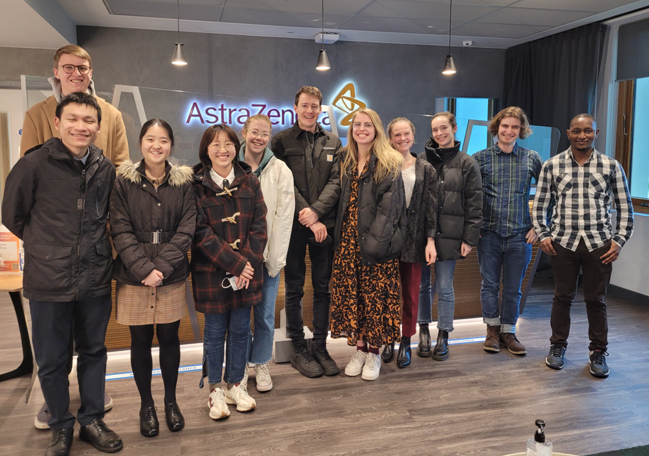Chantelle Cornett
Health Informatics PhD student at The University of Manchester
Part of the 2023 intake of HDRUK-Turing Wellcome PhD Programme students, Chantelle has a background as a pharmaceutical industry statistical programmer and hopes her doctorate will pave the way for a career as a research scientist specialising in prediction modelling.

Tell us a bit about yourself and your background
I took a BSc Statistics at University College London. After graduating I undertook an NIHR research internship at the UCL MRC Clinical Trials Unit investigating methodology surrounding independent participant data meta-analysis. I then worked as a statistical programmer in the pharmaceutical industry while completing my MSc in Medical Statistics at London School of Hygiene and Tropical Medicine.
How did you become interested in health data science?
My interest in health data science began during my final year of my undergraduate degree in statistics, where I took modules in medical statistics. I found myself captivated by the potential of data to tell stories and guide decision-making within healthcare. I decided to volunteer as a data analyst at The Neurological Alliance to put what I’d learned into practice. After graduating from UCL, I was an intern at the UCL MRC Clinical Trials Unit which led to publishing a paper with other academics into the use of other covariates when conducting individual participant data meta-analyses. After witnessing data science within industry and academia, my passion for the field solidified. This led to me wanting to pursue a research career within health data science.
What attracted you to the HDR UK programme?
I was drawn to this programme due to the flexibility you have during your first year to develop your own thesis idea. The emphasis on both methodological and applied data science with applications in healthcare combined with the opportunity to collaborate with renowned academics aligns perfectly with my goal of gaining in-depth expertise in clinical prediction modelling. Additionally, the programme’s commitment to hands-on learning through self-directed projects, training days, as well as its generous funding for data acquisition and travel allows great flexibility, providing a solid foundation for my research career aspirations. I was particularly excited to learn about machine learning in the context of clinical prediction as it reflects the programme’s forward-thinking approach and commitment to staying at the forefront of the rapidly evolving field of data science.
What are you looking forward to about the PhD?
I’m excited about my PhD journey, especially the research opportunities in clinical prediction modelling at the University of Manchester. I look forward to delving into problems surrounding multi-state modelling, feedback loops, and applications in women’s health. I am also enthused by the opportunity to collaborate with researchers in my faculty and to contribute innovative solutions to current challenges. This programme aligns perfectly with my academic and professional goals, offering not only intellectual growth but also the chance to make a meaningful impact in the field of health data science.
Do you have plans for the future?
I see my PhD as a stepping stone toward my long-term goal of being a research scientist, specialising in prediction modelling. The in-depth expertise I am gaining in health data science during my doctoral studies will be instrumental in pursuing a career in health data research. I am considering opportunities in both industry and academia. Additionally, I plan to actively network with professionals in my field, attend conferences, and collaborate on projects aligned with my research interests. While I have a general plan in mind, I am also open to exploring diverse opportunities that may emerge as I progress in my career journey.

